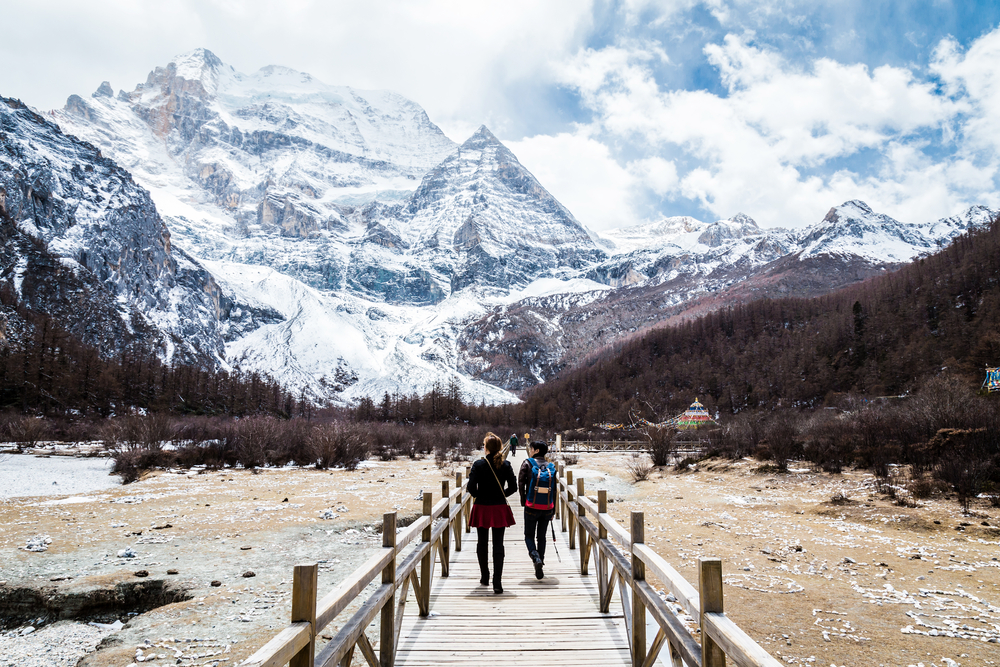Skiers seeking adventures beyond the Alps and Rockies may soon have an unexpected new region to explore: China. Although it has many towering peaks with an abundance of skiable terrain, this sprawling land has only just emerged as an international ski destination. If recent developments are an indicator, this is all about to change.
Fueled by Beijing's winning bid as host of the 2022 Winter Olympics, China has more than doubled its ski resorts in the last six years, adding amenities on par with European and American destinations as the sport becomes fashionable among the middle and upper class. Most skiers remain in-country to enjoy China's more than 500 ski areas, which feature wide-ranging terrain well-suited to beginners and intermediates. China still struggles with a climate that relies heavily on man-made snow, but this makes little difference to skiers happy to cruise on groomed terrain. Resorts enhance the experience with luxurious hotel amenities, trendy restaurants and recreation like trapeze and sleigh rides.
At Changbaishan, a resort in the remote Jilin Province modeled after a Swiss ski village, skiers stay at high-end hotels like The Park Hyatt, The Westin and The Sheraton, where they can schedule spa treatments, enjoy fast food, and shop international retailers just like they might in Verbier. Club Med Yabuli offers all the comforts its name suggests, complete with swimming pools and gourmet restaurants. Jackson Hole China, modeled after its Wyoming namesake, features 1,000 luxury mountain homes modeled in the American West style.
As China piques the interest of leisure skiers worldwide, insight into the country has become more plentiful. SkiChina, a consultancy dedicated to the region, publishes research, resort reviews and area descriptions helpful to visitors and members of the ski industry. Filmmaker Jordan Manley, aided by skiChina, offers a glimpse of China's growing ski culture in a documentary released as part of his A Skier’s Journey series.

The 16-minute film takes viewers from China's most popular resorts to its outer reaches, including Changbai Volcano on the North Korean border, the rumored birthplace of Kim Jung Il. Tourists can now pay $80 to reach the top of the mountain by a large, groomer-style machine called a “cat”—although the plunge from the top is best left to expert skiers.
Manley also takes viewers to the Altai Mountains near Mongolia and Kazakhstan, the birthplace of skiing. Turkic tribes first perfected the art 10,000 years ago to hunt elk and deer. Manley interviews their descendents, showing the ancient tradition in action. Although the government has banned hunting in the mountain, the tribes have continued to pass down the skill of making and using skis.
As growing international interest and the Winter Olympics cast a spotlight on China’s ski scene, new resorts, real estate, restaurants and apres-ski options are making the country increasingly more attractive to global visitors. Its own enthusiasm for the sport may solidify China's place as the world’s next big luxury ski destination.














